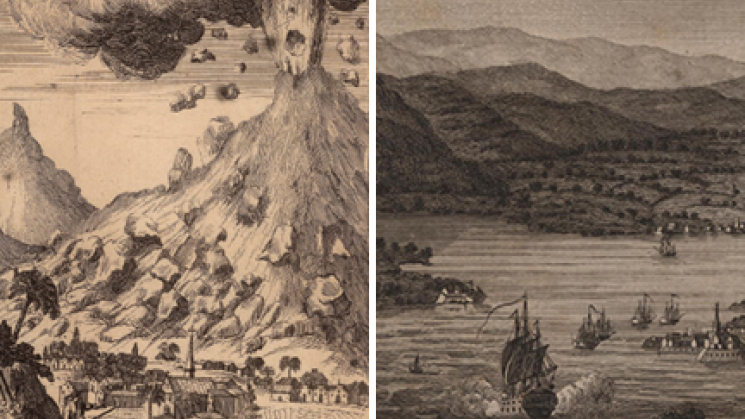Presentations by Megan McDonie and Hannah Knox Tucker

Please join us for presentations by JCB Fellows Megan McDonie and Hannah Knox Tucker.
Megan McDonie (Pennsylvania State University, Barbara S. Mosbacher Fellow) presents "Explosive Encounters: Volcanic Landscapes, Indigenous Knowledge, and Cultural Exchange in Early Modern Mesoamerica." This talk considers how volcanoes in Mexico and Guatemala served as sites of intellectual and cultural exchange among Nahuas, Kaqchikel Maya, and Spaniards during the sixteenth through eighteenth centuries. By focusing on four volcanoes during periods of dormancy and moments of eruption, this project evaluates how local populations understood and interacted with these volatile landforms. Volcanoes offered valuable resources and became the loci of expanding knowledge about the natural and subterranean worlds, while their eruptions threatened the livelihood of nearby towns. This project aims to link ethnohistory and history of science to examine how the dynamics of conquest and colonization shaped perceptions of the natural environment.
Hannah Knox Tucker (The University of Virginia, Marie L. and William R. Hartland Fellow) presents "'Embrace all Opportunities': Cultivating the Merchant-Captain Relationship in the British Atlantic." Mercantile sea captains controlled the goods and ships entrusted to them and made decisions that determined the profitability of these ventures. Captains did so in spaces where owners and investors could not directly observe their behavior, giving them abundant opportunity to act for their own interest at the expense of their employers. "Embrace all Opportunities" explores the range of activities left to captains' discretion and the ways merchants and captains cultivated their relationships based on their perceived opportunities. It suggests captains cultivated trust by demonstrating ability through repeated voyaging, conscious self-representation amidst failure, and independent verification.